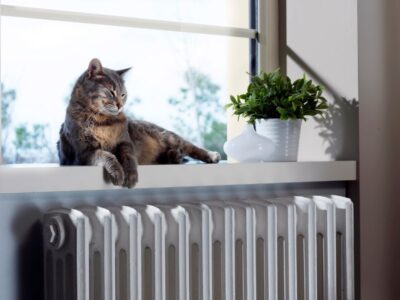 Even with the recent down tic in gas prices, Mobile residents are always looking for ways to save money, reduce energy use, and lighten up their carbon footprint. To do this, it takes understanding of two simple principles: energy conservation and energy efficiency. A quick read below, and you will be shocked at how easy it is stop wasting money on energy.
Even with the recent down tic in gas prices, Mobile residents are always looking for ways to save money, reduce energy use, and lighten up their carbon footprint. To do this, it takes understanding of two simple principles: energy conservation and energy efficiency. A quick read below, and you will be shocked at how easy it is stop wasting money on energy.
The Difference Between Conservation and Efficiency
Although these terms are often used interchangeably, there’s a big difference between conserving energy and using it efficiently.
Energy conservation is the act of reducing the amount of energy you use by changing certain behaviors, such as riding your bike to work a few times a week instead of driving. Energy efficiency is the act of ensuring that the energy you consume is used efficiently, such as properly maintaining your car or purchasing a hybrid vehicle.
Practicing energy conservation and increasing energy efficiency results in considerable savings while helping to preserve natural resources. Start by addressing the three major energy systems in your home: HVAC, water heating and lighting.
The HVAC System
Heating and cooling your home account for about half of your annual utility bill, and energy conservation is essential for lowering these costs.
- Keep the thermostat set at 78 degrees in the summer and 68 degrees in the winter.
- Set back the thermostat by 15 degrees for at least eight hours every day to reduce heating and cooling costs by up to 15 percent. A programmable thermostat can help you manage thermostat settings automatically, based on your schedule.
- Set back the usual thermostat setting by three degrees and compensate by wearing warmer clothes in the winter or using fans to help you feel cooler in the summer.
An energy efficient HVAC system will ensure that the cool or warm air you consume isn’t wasted.
- Schedule an annual HVAC maintenance at the beginning of each season.
- Seal air leaks in your home. The loss of cool or warm air due to leaks makes the HVAC system work harder to maintain the right temperature.
- Inspect the HVAC system’s air filter each month and replace a dirty filter right away to ensure proper airflow and prevent dust from building up inside the system.
- Seal the ductwork. Leaky ducts in the typical home account for a 20 to 40 percent loss of the air that flows through.
- Insulate ductwork in unconditioned places like the attic, crawl space or garage to keep the air inside at the optimum temperature as it moves through and to help prevent mold that may result from condensation.
Water Heating
Daily use of hot water accounts for about 20 percent of your annual utility bill. Conservative use of hot water begins with the following:
- Only wash full loads of dishes and clothes and use the shortest cycle listed for the appliance.
- Wash clothes in cold water, and save hot water washes for bedding and towels.
- Install low-flow toilets, showers, and faucets to conserve hot water.
Annual maintenance tasks increases your hot water heater’s energy efficiency. Below are three practical DIY chores to do once a year:
- Lower the thermostat to 120 degrees, which is sufficient for most household needs.
- Insulate the exposed cold and hot water pipes, and install an insulating jacket on the tank.
- Flush the tank every two years to remove sediment, which acts as insulation between the heating element and the water.
Lighting
Lighting accounts for about 10 percent of your annual utilities. The high price of electricity and the large amount of natural resources required to generate it make energy conservation particularly important when it comes to lighting.
- Turn off lights when you’re not using them.
- Put outdoor lights on a timer so they turn off as soon as the sun comes up.
- Consider a lighting system that runs on automatic settings or allows you to turn lights on and off from a remote location using a WiFi-enabled device.
Boost your use of energy efficient lights and reduce your habit of leaving lights on during the day.
- Replace incandescent bulbs with compact fluorescent lights (CFLs), which use a whopping 75 percent less electricity and last six times longer.
- Install dimmer switches to reduce the amount of energy used per bulb.
- Invest in LED lights for the holidays, which use a small fraction of the energy of standard string lights and burn cooler.
In Mobile, call us at Air Specialty for more expert tips on practicing energy conservation and improving energy efficiency in your home.





License # 84408